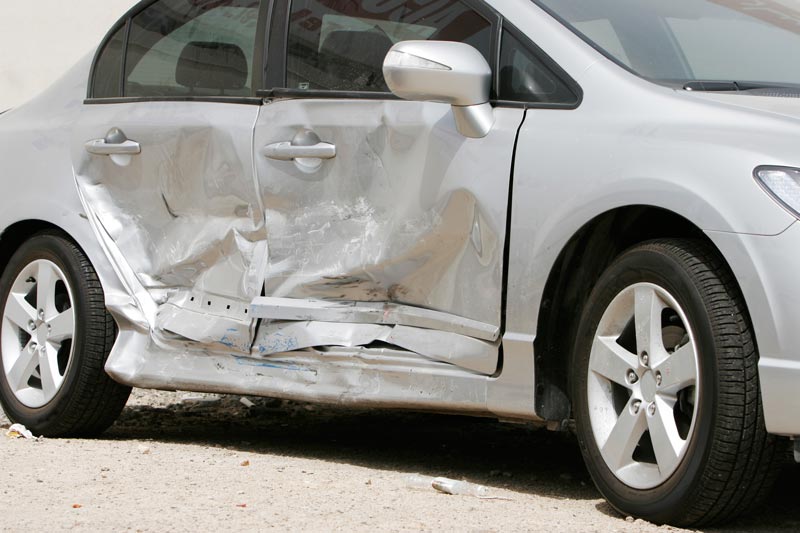Accident Aftermath: What to Do in the Days and Weeks After a Car Collision
- By Admin
- •
- 21 Nov, 2017
- •

Car accidents seem like the type of thing that we only hear about happening to other people, so it can be devastating to be a victim of a collision yourself. One moment you're driving and thinking of your various obligations, and the next you're off the road wondering how everything changed so fast. Even if you were in a minor collision where the car was damaged a lot more than you were, you need to take care of yourself.
The trauma that can occur during an automobile accident can cause problems that show up days later, and of course there's the emotional aspect of coping with the fear of the moment and the hassle of having to get your car fixed or replaced. Below are a few things you should focus on now that the worst is over with and you're recovering from your injuries.
1. Notify Your Insurance Company
Hopefully you gathered enough information at the scene of the accident to file a thorough insurance claim. In the days after the accident, you might have difficulty remembering what happened, where the vehicles were positioned, and so forth, so consult the notes you took and call the at-fault driver's insurance company. Do this as soon after the accident as possible - no more than a few days later.
After you report the accident, the insurance company will give the claim to at least one claims adjuster, who will handle the claims for property damage or personal injury. You should also follow up with the at-fault driver. This can expedite the process and let the other party know that you're serious about pursuing the claim.
Do not discuss details of the accident with the driver, as they may use your words against you. You should only discuss these aspects with the claims adjuster or an attorney.
2. Care for Your Injuries
A car accident gives you an adrenaline rush that may cause your body to ignore injuries until later. Just because you feel fine after an accident doesn't mean that you are. You should see a doctor if you feel any kind of pain or discomfort, or possibly even if you feel okay, just in case. You could have some internal damages such as whiplash or a concussion, which may give you the following symptoms:
- Difficulty concentrating
- Headache
- Blurry vision
- Nausea
- Pain and swelling in the neck
Some of these effects take days to manifest themselves, so it's a good idea to get a checkup as soon after the accident as you can. A checkup is also important in the event that you make a personal injury claim; if you sought medical treatment directly after the accident and found injuries, you'll be able to use your medical records to bolster your claim.
If you wait too long, adjusters may argue that you must not have been injured badly enough to merit compensation.
3. File a Lawsuit If Necessary
Settling is ideal, of course, but sometimes the at-fault driver's insurance company will fail to adequately cover your damages or the driver will refuse to pay more than their deductible even though you have injuries that haven't been paid for. In this case, you need to find a reputable car accident attorney to file a lawsuit. In California, the statute of limitations for filing a claim is two years from the date of the injury.
Your attorney will draft a formal complaint and send it to court, and the at-fault driver will be served with the complaint as well. You and the attorney will gather information from the other driver and compile evidence for the trial. Settling is still an option if, during this period, you receive an acceptable offer.
No one expects to be in a car accident, but it's important to prepare adequately in case one happens. You need to know what to do during the days and weeks after a crash. Take care of yourself physically, and file a claim with the insurance company. If your offer is unacceptable, contact Anderson & Anderson LLP for a consultation. We will help you seek adequate compensation for your injuries.
Your attorney will draft a formal complaint and send it to court, and the at-fault driver will be served with the complaint as well. You and the attorney will gather information from the other driver and compile evidence for the trial. Settling is still an option if, during this period, you receive an acceptable offer.
No one expects to be in a car accident, but it's important to prepare adequately in case one happens. You need to know what to do during the days and weeks after a crash. Take care of yourself physically, and file a claim with the insurance company. If your offer is unacceptable, contact Anderson & Anderson LLP for a consultation. We will help you seek adequate compensation for your injuries.

As many people know, having a family dog can be a wonderful and healthy addition to a family. Dogs can be very loyal and are capable of loving unconditionally. Unfortunately, dogs can also be unpredictable at times, particularly with people they are unfamiliar with. A dog that is normally fine with people can sometimes snap and bite someone with no rhyme or reason.
In some cases, dog bites can be extremely serious, even causing life-altering injuries. The first thought is often who is liable for the bite and the expenses that come with it. Many states have a one bite rule. This means that that the owner of the dog is liable for the bite, even if it has never bitten someone before.
The following is some information on dog bites and who will have to pay the damages caused by the injury.

Whether you're injured in an auto accident or as a result of a faulty product, the steps you take after you're injured can either help or hurt your personal injury claim. While social media has become a regular part of our daily lives, using it can complicate your claim and have a negative impact.
Here's what you need to know about the ways using social media can hamper your personal injury claim.

With healthcare costs continuing to rise, tort reform has been a hot topic in the news – so hot that the U.S. House of Representatives recently passed House Resolution 985 (HR 985), a bill designed to limit recovery and sometimes even litigation in certain types of personal injury lawsuits.
Although this bill must still pass muster with the Senate Judiciary Committee before being sent to the president and potentially signed into law, it represents a key part of Congress's plan to make the legal market more business-friendly and enjoys a broad base of support. What could passage of this bill (or a similar one) mean for a current or future personal injury claim?
Read on to learn more about how this type of tort reform could affect your ability to proceed in certain types of personal injury cases.



